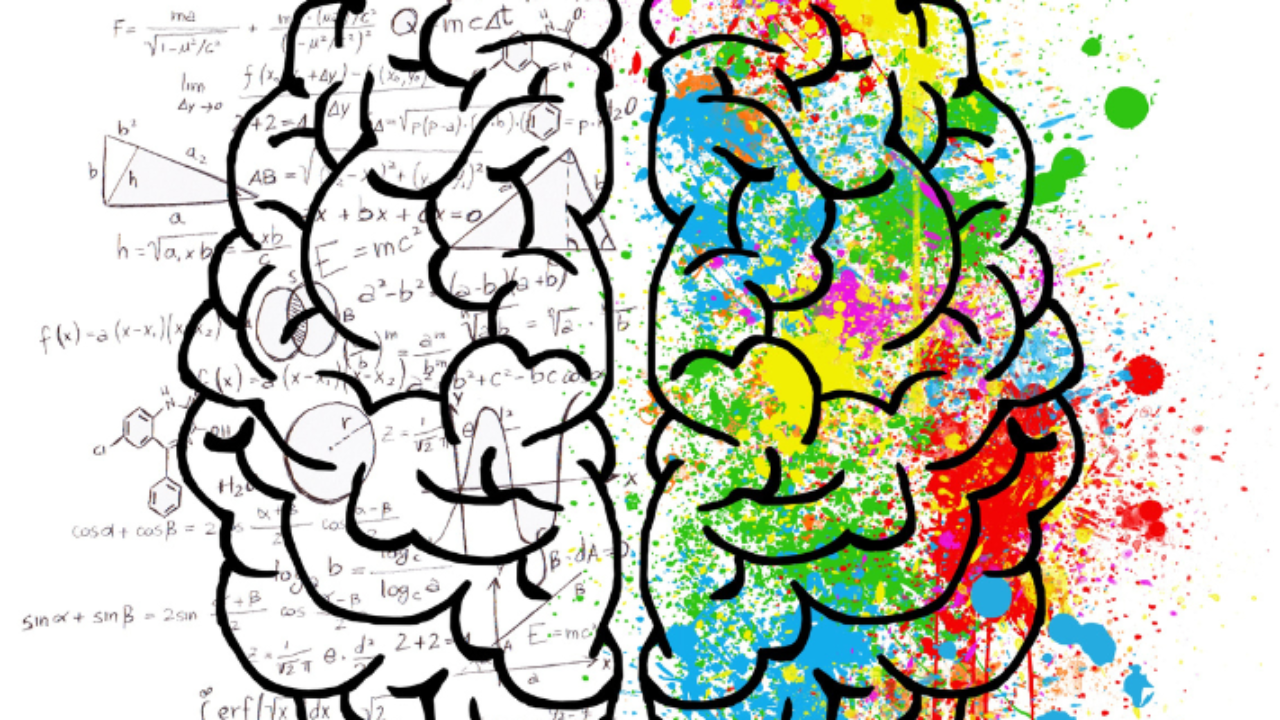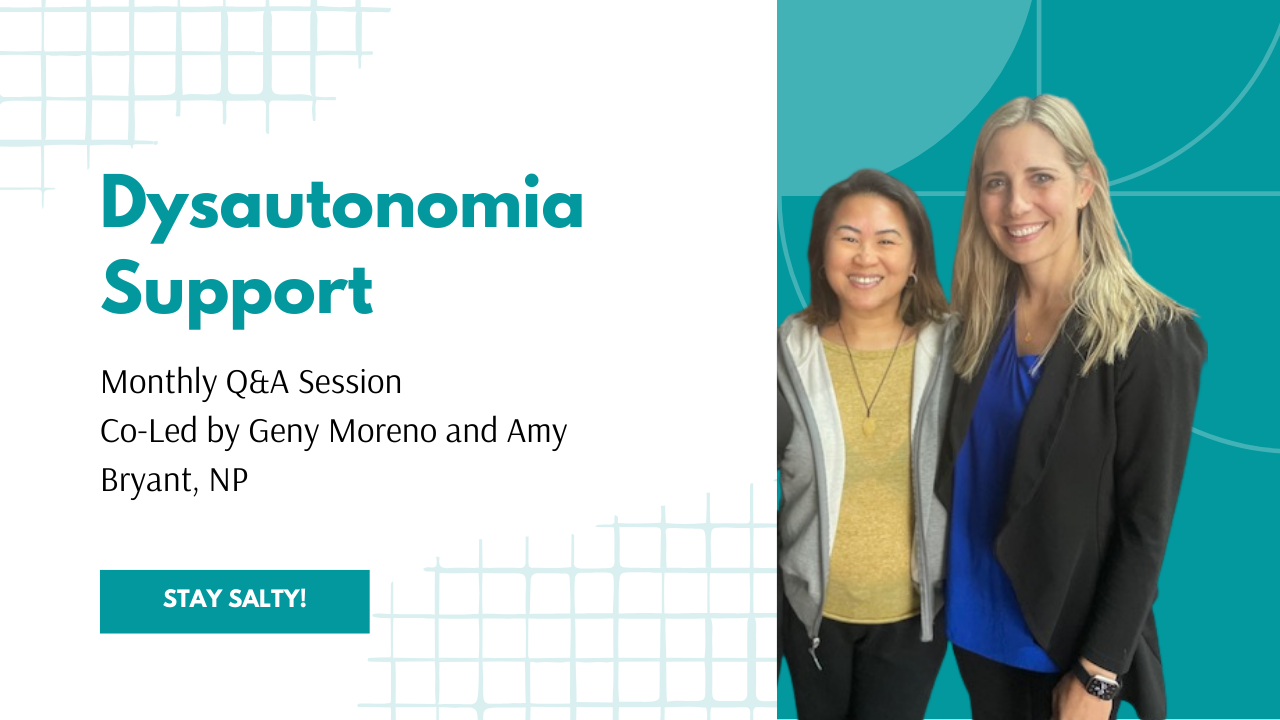Blog
Rethinking ADHD: Beyond Deficits to Understanding Different Brains

A Conversation with Dr. Brian Plante, ND with The Amen Clinics
For too long, we've looked at ADHD through the lens of deficiency—what's wrong, what's missing, what needs to be fixed. But what if we've been asking the wrong questions? Dr. Brian Plante, a naturopathic doctor with Amen Clinics who himself understands the world of neurodivergence on a personal level, offers a refreshingly different perspective that could transform how we understand attention differences.
Top-Down vs. Bottom-Up: Two Ways of Processing the World
Dr. Plante explains that our brains process attention in two primary ways: top-down and bottom-up.
Top-down processing is like seeing the forest first. It's when your brain uses plans, prior knowledge, and goals to filter sensory input, screening out what's irrelevant to your current focus. Most neurotypical brains operate primarily this way—they can tune out the background noise of a coffee shop to concentrate on their laptop.
Bottom-up processing takes in
...How Weather Changes Affect Autonomic Function

If you live with hypermobility, POTS, or other forms of autonomic dysfunction, you've probably noticed something remarkable: you can predict weather changes before they happen. That's not magic—it's your body's heightened awareness responding to shifts in barometric pressure, humidity, and temperature.
The Weather-Body Connection
Weather has a significant impact on autonomic function, but the effects vary depending on your specific type of dysfunction. About half of people with hypermobility and POTS feel worse when temperatures drop, while the other half improve.
For those who struggle with cold-triggered vascular issues, fall and winter can be particularly challenging. However, if your autonomic dysfunction is complicated by seasonal allergies from pollen blown down from hill country in spring and summer, you might actually feel better during cooler months.
The warning signs typically appear 24 hours before a weather front arrives: unexplained soreness, joint pain, brain fog,
...Beyond Dentistry: Unlocking Whole-Body Health Through Jaw Alignment

At Texas Center for Lifestyle Medicine, we're constantly exploring the intricate connections within the human body that traditional medicine often overlooks. Recently, Dr. Cheng Ruan sat down with Dr. Ali Alkhiro to discuss a fascinating topic that impacts far more than just your dental health: the profound relationship between jaw function and whole-body wellness.
Beyond Your Teeth: Understanding the Trigeminal-TMJ Nexus
In our latest group visit, Dr. Ruan explained the role of the trigeminal nerve—the nerve system responsible for jaw formation and function. This revelation came from an unexpected source: veterinary medicine. Veterinarians have long understood that manipulating a dog's canines can trigger severe neurological responses, a phenomenon called canine dysautonomia. The same principles, it turns out, apply to humans.
The trigeminal nerve doesn't work in isolation. Dr. Ruan describes what's called the "trigeminal respiratory interface"—a system where the nerves in you
...Simple Tools for Managing Autonomic Dysfunction

The TMJ-Vagus Nerve Connection: Simple Tools for Managing Autonomic Dysfunction
If you're living with hypermobility, MCAS (Mast Cell Activation Syndrome), or autonomic nervous system dysfunction, you know that weather changes and seasonal shifts can trigger uncomfortable symptoms. But what if some of the most powerful tools for managing these symptoms are literally right under your nose—or more specifically, in your jaw?
In a recent group visit, Dr. Cheng Ruan shared fascinating insights about the often-overlooked connection between your temporomandibular joint (TMJ) and your vagus nerve, and how simple physical interventions can help calm your autonomic nervous system.
Understanding the TMJ-Vagus Nerve Connection
Your TMJ—the temporomandibular joint—is far more than just the hinge that lets you chew. It's actually one of the most important regulators of your autonomic nervous system.
Here's why: The trigeminal nerve, which has branches throughout your jaw, sinuses, and fac
...Communication Tips for Dysautonomia: Advocating for Yourself

At the Texas Center for Lifestyle Medicine, we understand how challenging it can be to communicate your unique health needs clearly, especially when dealing with conditions like Dysautonomia. This condition, often misunderstood or mistaken for anxiety, requires specific strategies to ensure medical teams can provide the best care.
In our Monthly Dysautonomia Q&A Sessions led by Geny Moreno and Amy Bryant, NP attendees can share tips, ask questions, and together, navigate the complex journey of Dysautonomia.
In our last session, Amy Bryant and Geny Moreno share valuable insights on how to effectively communicate with your healthcare providers about Dysautonomia, focusing on verbiage and self advocacy.
Understanding Dysautonomia
Dysautonomia is an umbrella term used to describe a range of conditions that affect the autonomic nervous system, causing symptoms that can seem similar to anxiety. However, it's crucial to distinguish Dysautonomia from anxiety in medical settings to ensure...
Beyond Labels: Understanding ADHD Through a Whole-Person Lens

Insights from Dr. Brian Plante's recent 'Ask the Expert' Group Visit at TCLM
At TCLM, our 'Ask the Expert' Group Visits offer something unique in healthcare: the opportunity to dive deep into complex health topics with leading specialists in an intimate, interactive setting. Our recent session with Dr. Brian Plante, naturopathic doctor at the Amen Clinics, perfectly exemplified why these group visits are transforming how we approach neurodivergence and ADHD.
What Makes Our Approach Different?
Dr. Plante introduced our participants to the concept of "affirming brain care" – a paradigm that recognizes the innate humanity in how each person experiences and navigates the world. Rather than viewing ADHD as something that needs to be "fixed," this approach asks a fundamentally different question: What needs support, and what's already working well?
"From my perspective, affirming means recognizing the innate humanity underneath what's being experienced," Dr. Plante explained. "Jus
...The Root Causes of Memory Loss Guest Speaker, Dr. Gerard Meskill

We're excited to announce that Dr. Gerard Meskill, Founder & Physician of Tricoastal Narcolepsy and Sleep Disorders Center, will be our featured expert guest for Week 2 of our Root Causes of Memory Loss series this Friday, September 12th at 8:30 AM.
The Critical Connection Between Sleep and Memory
Did you know that poor sleep is one of the strongest predictors of cognitive decline? During this special session, Dr. Meskill will share cutting-edge insights on how sleep disorders directly impact memory and cognitive function, and why sleep optimization is essential for preventing cognitive decline.
What You'll Learn from Dr. Meskill
Our expert guest will provide professional insights on:
- The critical role of sleep in brain health and cognitive function
- How sleep disorders directly impact memory and cognition
- The importance of proper diagnosis and treatment of sleep disorders
- Advanced strategies for improving sleep quality and brain health
- When to seek professional sleep e ...
Resolving Chronic, Complex Conditions with Dental DNA Appliances

Sleep disorders often go undiagnosed, particularly in women who may never snore despite having significant breathing issues during sleep. What many don't realize is that the root cause of these problems—and numerous other seemingly unrelated symptoms—may lie in something as fundamental as jaw alignment and development.
The Silent Nature of Sleep Disorders
Contrary to popular belief, sleep apnea doesn't always announce itself with loud snoring. In fact, most women with sleep apnea have silent symptoms. This "silent" presentation means that many people, particularly women, go undiagnosed for years while experiencing symptoms like:
- Migraines upon waking
- Rare or disrupted REM sleep, difficulty staying asleep
- Oxygen levels dropping
- Chronic pain, posture issues
- Gut issues, hormone imbalances
- Chronic fatigue despite adequate sleep duration
- And much more!
The silence occurs because women have estrogen receptors that allow for tissue dilation, and those with connective tiss
...Understanding the Hidden Connections: How MCAS, Hypermobility, and Your Nervous System Work Together

Insights from Our Recent Educational Group Visit, Hypermobile Groups, with Dr. Cheng Ruan - Every other Tuesday
At Texas Center For Lifestyle Medicine, we believe that true healing happens when patients understand their bodies and feel supported by a community of peers who share similar experiences. Our educational group visit programs embody this philosophy, creating spaces where knowledge meets connection and where patients become active participants in their health journey.
Our recent Hypermobile group visit exemplified this approach beautifully. Led by Dr. Cheng Ruan, the session explored the intricate relationships between Mast Cell Activation Syndrome (MCAS), hypermobility, and nervous system function. What emerged was not just medical information, but a deeper understanding of how these conditions interconnect in ways that many patients—and even some healthcare providers—may not fully grasp.
The Many Names, One Root Cause
One of the most enlightening moments of the sess
...Mind-Body Skills for Transforming Trauma: 8 Week Program

At Texas Center for Lifestyle Medicine, we often hear patients say, "I don't think what I experienced was really trauma" or "Other people have been through so much worse." If this sounds familiar, you're not alone—and you're not wrong to seek healing, regardless of how your experiences compare to others.
The Reality of "Big T" and "Little t" Trauma
When we talk about trauma in healthcare, we recognize two important categories that can both significantly impact your well-being:
"Big T" Trauma
These are the experiences most people readily identify as traumatic:
- Major accidents, injuries, or medical emergencies
- Significant losses or life-changing events
- Natural disasters or violent incidents
- Experiences that fundamentally shifted how you see yourself or the world
"Little t" Trauma
These experiences are often minimized but can be equally impactful:
- Chronic stress from difficult relationships or work environments
- Childhood experiences of feeling consistently unseen, un ...
